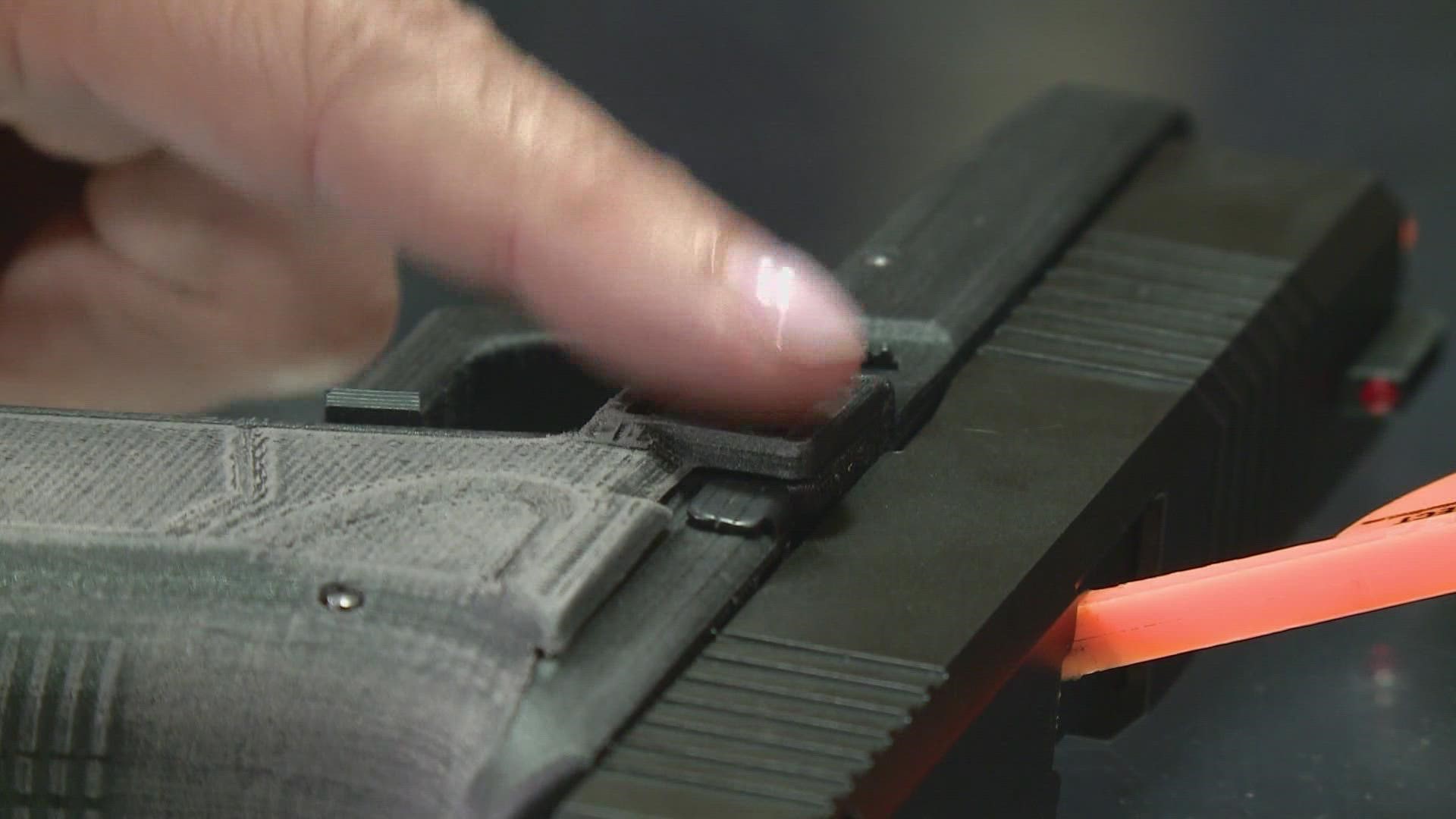SAN ANTONIO — While the right to bear arms is guaranteed by the Second Amendment, it isn't guaranteed that every gun owner will be responsible.
Accidental shootings seem to happen all the time—many of them involving children, some of them deadly. It was just last weekend that a 13-year-old San Antonio boy was shot in the head; according to police, a relative was playing with the gun when he pulled the trigger and fired.
Stories like these aren't uncommon. According to Texas Gun Sense, a nonprofit that advocates for responsible gun ownership, 32 Texas children died in 2019 from accidental shootings. And according to the Gun Violence Archive, there have been more than 1,300 unintentional shootings nationwide so far this year.
But creators of new technology soon to be revealed hope their solution prevents at least some of them.
'The safe is in the gun'
LodeStar Works has come up with a gun outfitted with a locking safety that only authorized people can bypass.
"If you have a firearm in your home and you knew it was locked, you don't have to worry about putting it in the safe," said LodeStar Works's Ginger Chandler. "The safe is in the gun."
Chandler has spent more than 15 years making guns with Remington and Smith & Wesson. Now with LodeStar, she helped design the LS-9, a 9-millimeter semiautomatic handgun that will not fire, no matter how or how hard you pull the trigger.
The concept: a handgun with multiple layers of security, assuring only the owner can fire it. Those include a fingerprint pad on the side, fingerprint identification on the owner's smartphone and a pin pad on gun itself.
"It's as simple as touching the keypad with your thumb," Chandler said. "It unlocks, now the weapon is ready to fire. Touch it again, it's locked."
Other than the keypad on the handle, there's really no different between the LS-9 and any other handgun.
And LodeStar isn't the only firearm manufacturer creating new technology to curb accidental shootings. SmartGunz is working with radio frequency identification (RFID) technology that requires their firearms to connect to a different device to unlock: a ring.
"Once it locks onto that ring," says SmartGunz's Tom Holland, "basically IDs the unique ID code imprinted on that ring, then it's available to fire. But until it does that, it's as dead as a hammer. It's not going to do anything."
The RFID chip is in a ring the user has to wear; it contains a specific code to that specific weapon.
"Once you hit that grip, it's like, boom," Holland said. "It's found it, it's ready to go."
Like LodeStar, SmartGunz is not trying to replace conventional handguns. Holland says their market is gun-owners who want quicker access to their weapon, with the bonus of absolute safety. Or, in certain circumstances, weapons that could be used by law enforcement.
"What we're saying is there are specific situations – like when you're transporting a prisoner, like when you are doing something in a courtroom – where this might be technology you might find suitable."
A second opinion
Some gun enthusiasts are understandably skeptical.
Those include Ed DeWeese, who owns Ranger Firearms on San Antonio's north side. He says he believes his customers will view the concepts by LodeStar and SmartGunz as a gimmick, and questions their reliability.
"I'm not a fan of it," DeWeese said. "I just have a major concern of fail. And when you're under fire, you think you can hold your hand as still as I am right now? No way. See what happens if you can't get your hand on that spot."
Holland and Chandler, meanwhile, say there's no question their respective guns work. Regardless of whether they entice gun-owners, Chandler reminds them to be responsible.
"Don't buy ours if you don't want to," she said. "If you don't trust it, don't. But please: Lock your guns up."
"We just want to let people know," Holland added, "nevertheless, this technology is coming."

